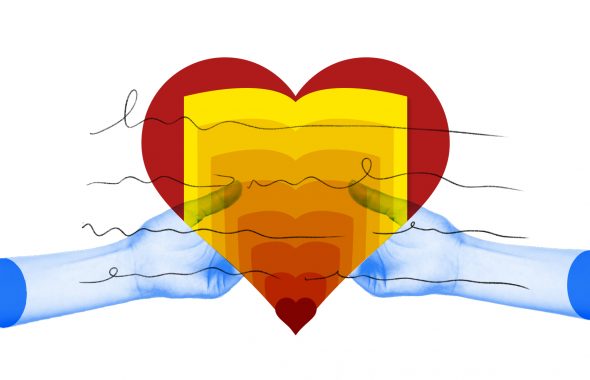Fair warning: Reading ahead will put you in contact with some controversial “bad” words.
There are some words in English considered so derogatory and controversial that some people won’t even type them out. They’re shortened, instead, to the just one letter, followed by “word.”
The c-word. The b-word.
They’re the sort of words young children are told never to utter and most certainly not to hurl as epithets at someone else. These are mean words, demeaning words, words that wound.
And yet, sometimes these words come out of the most unexpected of mouths, spoken by the very same people who they were once used to degrade. It’s a phenomenon known as linguistic reclamation, a means by which people wrest back power over the words once used to hold them down. By saying the words out loud, printing them on t-shirts, cross-stitching them to create kitschy decor, by using these words to describe themselves, the idea is that some pejoratives can somehow be reversed and reclaimed.
Geek. Queer. Slut.
When Bikini Kill’s Kathleen Hanna lipsticked the word slut across her bare midriff and danced around in front of audiences in the 1990s, she dared people to challenge her right to use the word. She’s one of countless women who helped lead slut to take on new meaning as everything from a symbol of feminism to emphatic slang for obsessive desire. Now, slut can be seen as powerful yet fun because it’s been reclaimed to celebrate and promote women’s liberation in many forms … and that’s a far cry from disparaging a so-called sexually promiscuous woman.
When she first started performing the Vagina Monologues in 1996, Eve Ensler forced audiences to listen as she spelled out cunt, slowly, and over and over again.
“Just listen to it, listen to it,” Ensler demanded. “Cunt. C C. Ca Ca. Cavern, cackle, clit, cute, come-closed c-closed inside, inside ca-then u-then cu-then curvy, inviting sharkskin u-uniform, under, up, urge, ugh, ugh, u — then n then cun — snug letters fitting perfectly together — n — nest, now, nexus, nice, nice, always depth, always round in upper case, cun, cun-n a jagged wicked electrical pulse-n (high pitched noise) then soft n-warm n — cun, cun, then t — then sharp certain tangy t — texture, take, tent, tight, tantalizing, tensing, taste, tendrils, time, tactile, tell me, tell me “Cunt cunt,” say it, tell me “Cunt.” “Cunt.”
By the end of the monologue, the word traditionally used to diminish cisgender women is somehow made beautiful, the strength of what it truly represents laid bare.
Similarly, the word pussy is one that deserves reclamation. Watch one woman’s view on the power of the word below.
WATCH: Reclaiming A Derogatory Term
Reclamation of pejoratives is not an easy thing or at times terribly popular. There will always be those who see hurtful words as too painful to be used by anyone, even fellow victims. Queer, for example, tends to be used more by millennial and younger members of the LGBTQ community than older peers who recall all-too-well its barbed usage in decades past. Reclamation may seem inappropriate or even demeaning to those in the older generation who were oppressed by the word, but others will argue that they can actually shed light on laws and views that need to change and foster progress by using the “q-word.” That’s why queer appeals to the younger LGBTQ generation—they feel empowered to stand up for their community and themselves and that is a sign of that progress.
Some will always see words like slut and bitch as derogatory, even as others load Meredith Brooks’ “Bitch” and take off for their morning runs feeling ready to take on the world. It’s OK to feel differently about controversial words. But, that doesn’t mean we should hide them, avoid them, or ignore them altogether. Why?
Because even though words can be the tools of oppression, when used by the oppressed, they can also hold immeasurable power. So, why leave these harmful words in a place where they can wound, when we can pick them back up, dust them off, and find ways to reuse them in order to bring light to those who have been harmed. Derogatory terms get people’s attention, and oppressed people need others’ attention. However, even though reclamation is valuable and powerful and impactful … it should still be made clear that the younger generations using these reclaimed words shouldn’t just whip ‘em out in class or at the park—sorry y’all. Powerful words are still controversial … detention will tell you that.













